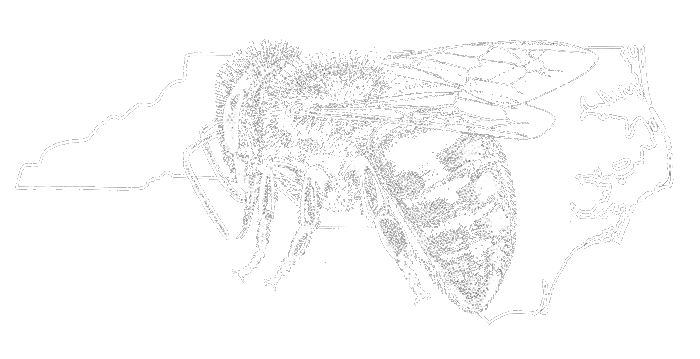For ten or more years prior to 1917 there had been a desire and interest to form a state beekeeping organization. However, since there was no official employed in beekeeping work in the state and no beekeeping public projects it was difficult to begin the organizational work. In 1916 an agreement was reached between the U.S. Dept of Agriculture and the N.C. State Extension Service to employ a beekeeping specialist for the state.
The agreement to hire a beekeeping specialist led to renewed and increased interest in forming a state beekeeping organization, and a meeting was scheduled for Jan. 11, 1917 in Winston-Salem. Interested beekeepers were contacted and a number of speakers were invited to present papers. Among those who responded and presented papers were Dr. E. F. Phillips, Apiculturist from the USDA Bureau of Entomology and Mr. E. R. Root of the A. I. Root Company in Medina, Ohio.
The total attendance at the meeting was over 150 and they probably represented about 6,000 colonies of honey bees. From this meeting, about 40 beekeepers started the N.C. State Beekeepers Association (NCSBA) with an annual dues of $1.00 per beekeeper.
Since its inception on January 11, 1917, the NCSBA has grown and prospered into the largest state beekeeping association in the U.S., with over 70 of the state’s counties organized into local chapters within the state organization.
To learn more read A History of the North Carolina State Beekeepers Association 1917-1997 by James Greene and Dr. John Ambrose.
Accomplishments
The NCSBA is an extremely active association and is constantly working to improve beekeeping in North Carolina and to aid beekeepers within the state. Below are some of the Association’s accomplishments:
- General Assembly created a full-time apiculture (beekeeping) position at North Carolina State University. (1975)
- The NCSBA created the Apiculture Science Fund to support beekeeping research at NCSU. (1976)
- The NCSBA successfully lobbied the North Carolina General Assembly to support the NC Department of Agriculture in its effort to increase the number of its apiary program inspectors.
- In conjunction with North Carolina State University and the NC Department of Agriculture, created the NC Master Beekeeper program in 1982. This program currently has over 2,800 beekeepers and is the largest program of its kind in the United States.
- Joined with other state beekeeping associations to pass federal legislation for a federal marketing order on honey and the creation of the National Honey Board. (1984)
- Co-hosted meetings with national beekeeping groups such as the Southern States Beekeepers Federation and the Eastern Apiculture Society in North Carolina
- Funds annual statewide beekeeping essay contest for 4-H members.
- The NCSBA provides a free beehive to each of the students in the top half of ENT 203 based on course grades. ENT 203 is an introductory beekeeping class taught each fall semester at NC State University.
- Cooperated with the NC Department of Agriculture and NC State University to create the “NC Africanized Bee Plan” to deal with Africanized honey bees when they arrive in North Carolina.
- Negotiations underway with the N. C. Zoological Park in Asheboro to develop a permanent bee display
- NCSBA enters the electronic age, and launches its web site: www.ncbeekeepers.org
- June 2009, the Honey Bee Habitat opened at the NC Zoo. N.C. State Beekeepers Association, N.C. Farm Bureau, Syngenta and Zoo Society donors raised $243,507 to make the exhibit possible.

